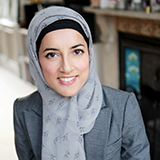 I recently bumped into a colleague I hadn’t seen for a while at a conference. He started asking me about a short trip I had made with a Chinese charity to teach cataract surgery in rural China. They had asked him to teach too and he was wondering what it was like and, importantly, what he could contribute.
I recently bumped into a colleague I hadn’t seen for a while at a conference. He started asking me about a short trip I had made with a Chinese charity to teach cataract surgery in rural China. They had asked him to teach too and he was wondering what it was like and, importantly, what he could contribute.
My trip to China started in the most civilised way. A very articulate and successful entrepreneur from Hong Kong was speaking at a meeting I attended in London to explain the work her charity did and why the contribution of UK ophthalmologists was needed in teaching rural eye doctors cataract surgery. It was impressive and well organised and she even offered to pay our airfare—it all seemed rather different to some of my other experiences of working abroad. I liked and related to their goals of teaching and sustainable professional development for local doctors. It was an area I was keen to be involved in, and I was curious about China, which was somewhere I had not considered working before, so I signed up.
Many months later and I found myself in a shiny, modern hospital in a busy, modern Chinese city. This was not quite the rural China I had envisaged. However, it was the capital of a rural province in central China, which is bigger than the size of England.
The hospital had already got a “wet” lab, which is widely used in the UK to teach surgery, and all the latest equipment sponsored by a global medical company specialising in eye care products. They had set up a phacoemulsification cataract surgery course, very similar to what we have in the UK. I was told that all the participants were eye surgeons from all over the rural province, and that they performed an older cataract surgery technique, and so were here to learn the new modern technique of phacoemulsification cataract surgery.
I didn’t get to see the facilities or hospitals that these rural doctors worked in. I also didn’t really get to speak to them as none of them could speak English. My days on the course were busy, and my evenings and free time were only spent with the course organisers who were from the main hospital and the representative of the medical company.
Phacoemulsification is the routine cataract operation in the UK and developed countries. It requires a phacoemulsification machine and therefore electricity, and has ongoing costs due to the maintenance of equipment. It also has a steep learning curve before the surgeon can be safe with good outcomes. Manual small incision cataract surgery (MSICS) is a technique devised in developing countries, which requires much more basic equipment, but which has been shown to give comparable outcomes. It is safe and effective.
I began wondering whether teaching phacoemulsification surgery was the solution to improving cataract surgery outcomes and where this idea had come from: the doctors, the charity, the company? This is not a unique issue to rural China. Another colleague recently went to the Congo with a different charity to volunteer for two weeks and also spent his time there teaching phacoemulsification. The doctors were very keen to learn, despite the frequent electricity cuts.
This is all part of the bigger picture in any overseas programme and collaboration. What you may think their needs are, versus what the locals may think their needs are, versus all the other vested interests. There is no simple solution, and, although these issues are at least given greater consideration in long term programmes and the bigger development organisations, it is not something that a doctor on their own may feel able to discuss with their gracious and hospitable hosts when on short term visits with a small charity.
From my experiences, and those of colleagues, both here and in other places it is challenging in short visits in a new place to put forward new suggestions when you’ve yet to fully understand the local context. However, it does require awareness of the many issues that accompany working overseas and the ability to sensitively but honestly deal with these. This is something that is yet to be covered in our training, however, training in global health can address this omission—something that many trainees have realised and advocated for from all the Royal Colleges. These programmes will continue with or without any individual. Doctors from the UK will remain keen to go and work overseas, and the hospitals and patients will remain glad to have them. The more we can do to support these individuals the better.
Aeesha NJ Malik is an ophthalmology registrar currently based in London with a special interest in global health. She is a policy adviser in the All Parliamentary Party Working Group on Global Health.
Competing interests: The charity that invited me to China is called Lifeline Express; they paid for my airfare and also arranged my accommodation while I was working for them. The global medical company I mention as sponsoring the Chinese hospital’s equipment is Alcon, which didn’t pay anything towards my expenses.
